As the war grinds on, delving into this intricately researched account of how the Syrian state and its alliances with tribes have played out and been played upon adds depth to what has often become superficial, tired commentary on a country few can still report from.
Haian Dukhan, a Syrian-British academic, posits in this work that there has been a resurgence in tribalism in recent times. This revival, he notes, has received scant attention compared with the issues of rising religious extremism and demands for greater civil society engagement in the Arab world.
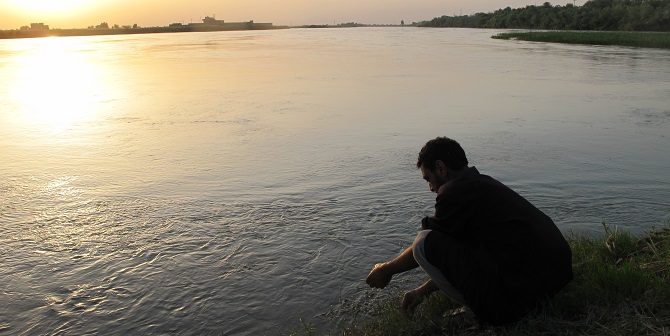
While the book provides some history about the area and its tribes prior to the French Mandate – exploring, for example, how tribes were dealt with and issues that arose during the early years of decidedly anti-tribal Islam – the bulk focuses on the period following it.
In so doing it provides much-needed background to better understand areas where fighting continues and ones that provided fertile recruiting terrain for armed opposition groups.
For example, the author provides illuminating examples of how ‘’Saudi funding’’ for Syrians in no way began simply when some asked for weapons to fight the government in 2011: kinship ties have long been strong and sheikhs and major portions of the tribes themselves have moved back and forth between the two countries, depending on whether the country’s powers-that-be held them in favor or were intent on taking away their land and power.
He notes Hafez al-Assad benefited greatly from Saudi grants and kinship networks, details how a sheikh’s intervention has at times led to death sentences being commuted for men wanted for murder, and explains how ‘’urf’’, tribal law, is still used.
Dukhan also explores changes over time in patronage networks, tribal participation in the parliament, and how Hafez al-Assad’s notoriously multi-pronged security apparatus helped to prevent any one branch from becoming powerful enough to potentially attempt a coup against him.
The differences in how Hafez al-Assad and his son Bashar dealt with tribes are fleshed out in detail.
Assad-the-father, a former defense minister from a rural Alawite village, was acutely aware of how badly he needed support from Sunni rural areas as a bulwark against forces that wanted him out. He thus actively sought to co-opt tribes – especially ‘’common ones’’ (as opposed to ‘’noble’’’ tribes) so as to make them feel more grateful for his support and thus more loyal – that had been alienated in the early years of Baathism amid its staunch ideological stance against them.
His son, on the other hand, who had done postgraduate studies in the UK, wanted to do away with the backwardness of the tribes and instead focused on liberalisation and the more educated classes with little knowledge of, or attention to, the steadily more impoverished tribes.
Though often a source of frustration for leaders wanting to modernise or coveting more power, tribal ties have often proved essential in keeping regimes in the Middle East stable. Dukhan argues that Bashar’s ignoring of this essential fact played a key role in his losing support in areas that later were some of the first to rise up against him.
Though the Muslim Brotherhood was stronger in rural areas in Egypt, Dukhan discusses why it was the opposite in Syria: the religious organisation simply could not compete with the tribal and less strict Islamic culture outside of urban centers.
The author notes that Hafez al-Assad made use of tribes as a counterweight against the urban adherents to religious movements that might threaten his power. It is well known and has been repeatedly documented, instead, that during the 2003 war and subsequent period, Bashar encouraged fighters especially from rural eastern areas to go to Iraq to fight against the US ‘’occupying force’’ in the neighbouring nation.
Controversial issues are not shied away from within this work. However, they are explored with an academic eye. Caveats are often mentioned prior to providing whatever documentation thus far has been gathered on them.
Dukhan touches on the highly debated issue of Kurdish and Arab claims to ‘’the Arab Belt’’ in northeastern Syria, for example, and on whether, or attempts to convert Syrians to Shiism have been as widespread as often alleged.
As a journalist who reported multiple times in opposition-held Idlib, Aleppo and Jabal al-Akrad between 2012-2015, as well as in 2019 from tribal areas of the Syria’s eastern Deir al-Zor region, I can attest that tribal ties remain strong in some key, potentially volatile areas.
Often Syrians from rural Deir al-Zor, for example, boast of being from a specific tribe, tell stories about in which tribes the men typically have several wives and ones in which you never see men with more than one, or talk about what ‘’the tribe would never allow’’. I have interviewed many members of the Shaitat tribe as well, after they were targeted by the Islamic State in a 2014 massacre that received scant attention and between whom tribal affiliation is important despite occasional infighting among them.
During two interviews of mine with former member of parliament, Sheikh Nawaf al-Bashir during his years with the opposition, he said that he was unhappy that the opposition groups fighting the Syrian government had not given tribal leaders the respect due to them. The sheikh and former MP, from the Baggara tribe in Deir al-Zor, later went back to the regime and now controls a militia allied with the Syrian government and close to Iran.
One rebel commander from the Baggara tribe I interviewed more recently refused to speak about the sheikh – presumably since tribal relations are still important even when shooting at each other, as the author of the book also implies.
Dukhan’s book puts many issues into a much clearer perspective and provides valuable documentation, bringing together, alongside his own research and that of many others to show that tribal affiliations continue to play a role in the dynamics of the ongoing conflict.
And as any good academic does, he raises questions that require more study and fieldwork. For the time being, the latter has been rendered arduous – or potentially impossible – by tight control over media access by the government in Damascus and by other groups controlling the much-divided territory that Syria continues to be.
Note: The CRP blogs gives the views of the author, not the position of the Conflict Research Programme, the London School of Economics and Political Science, or the UK Government.


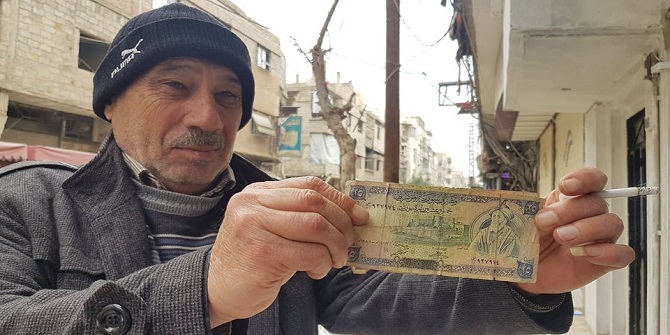
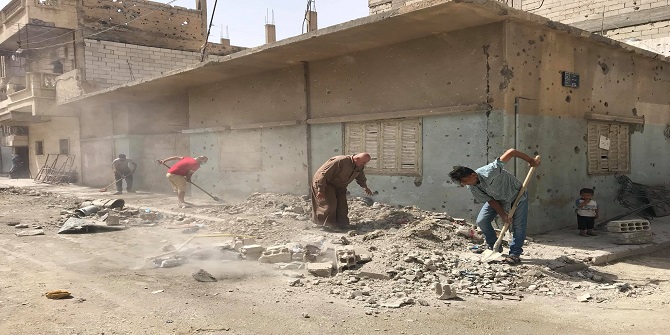
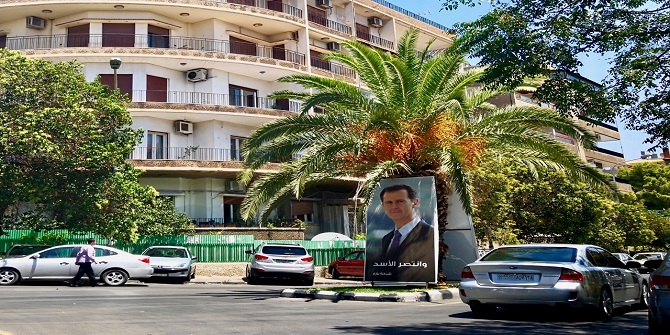
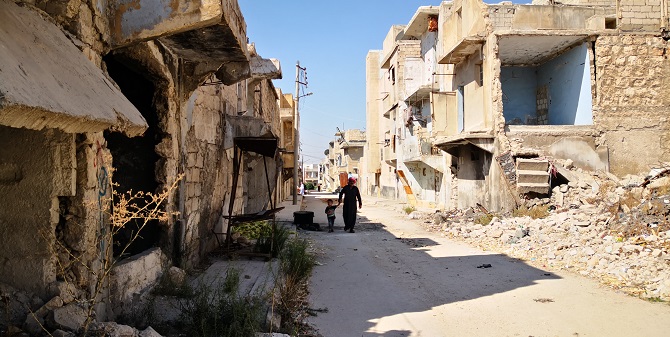
Looks good. thanks